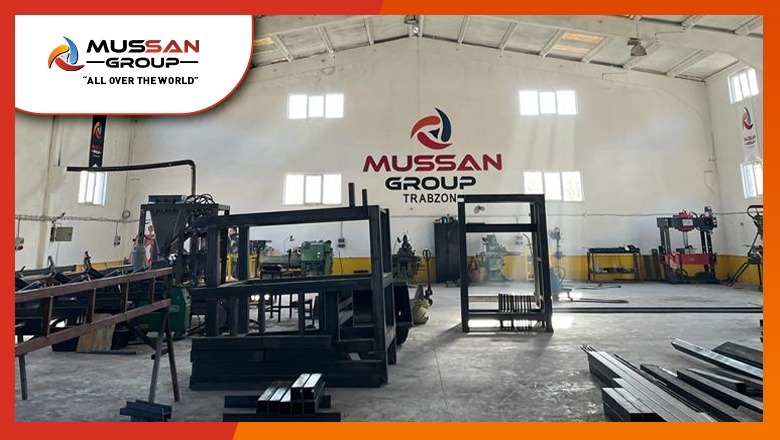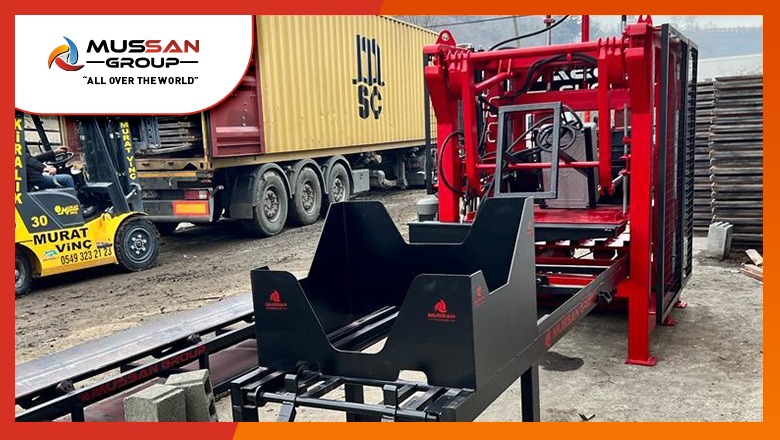
With our experience and reliability, we respond to your block making machine needs in the best possible way. We can assist you with efficient, environmentally friendly, and economical solutions. Choose us and experience a successful block production journey.
Block making machines vary based on production capacity, production speed, level of automation, number of molds used, and other features. Some technical specifications of block machines include:
Feature | Value Range |
Production Capacity | 1000-24000 pieces per hour |
Automation Level | Manual, Semi-Automatic, Fully Automatic |
Power Source | Electric, Diesel, Gas Engine |
Number of Molds | Between 1-4 |
Block Sizes | Various Dimensions |
Pressing Force | Between 50-200 |
For our Block Making Machine discount campaigns, you can visit our ”“Promotions“” page!
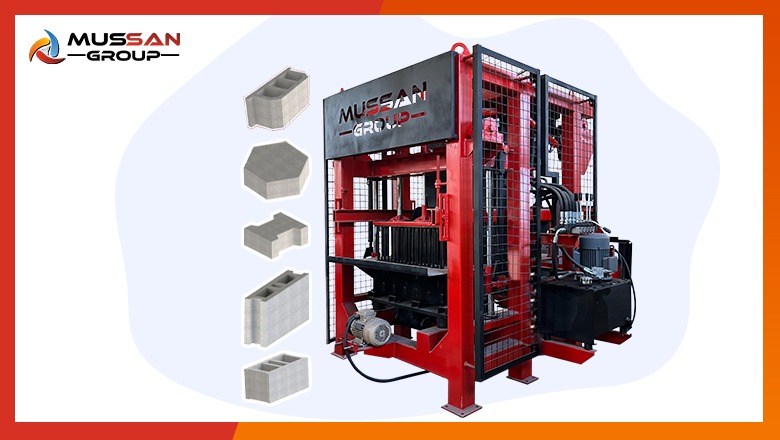
Visit. our YouTube channel.
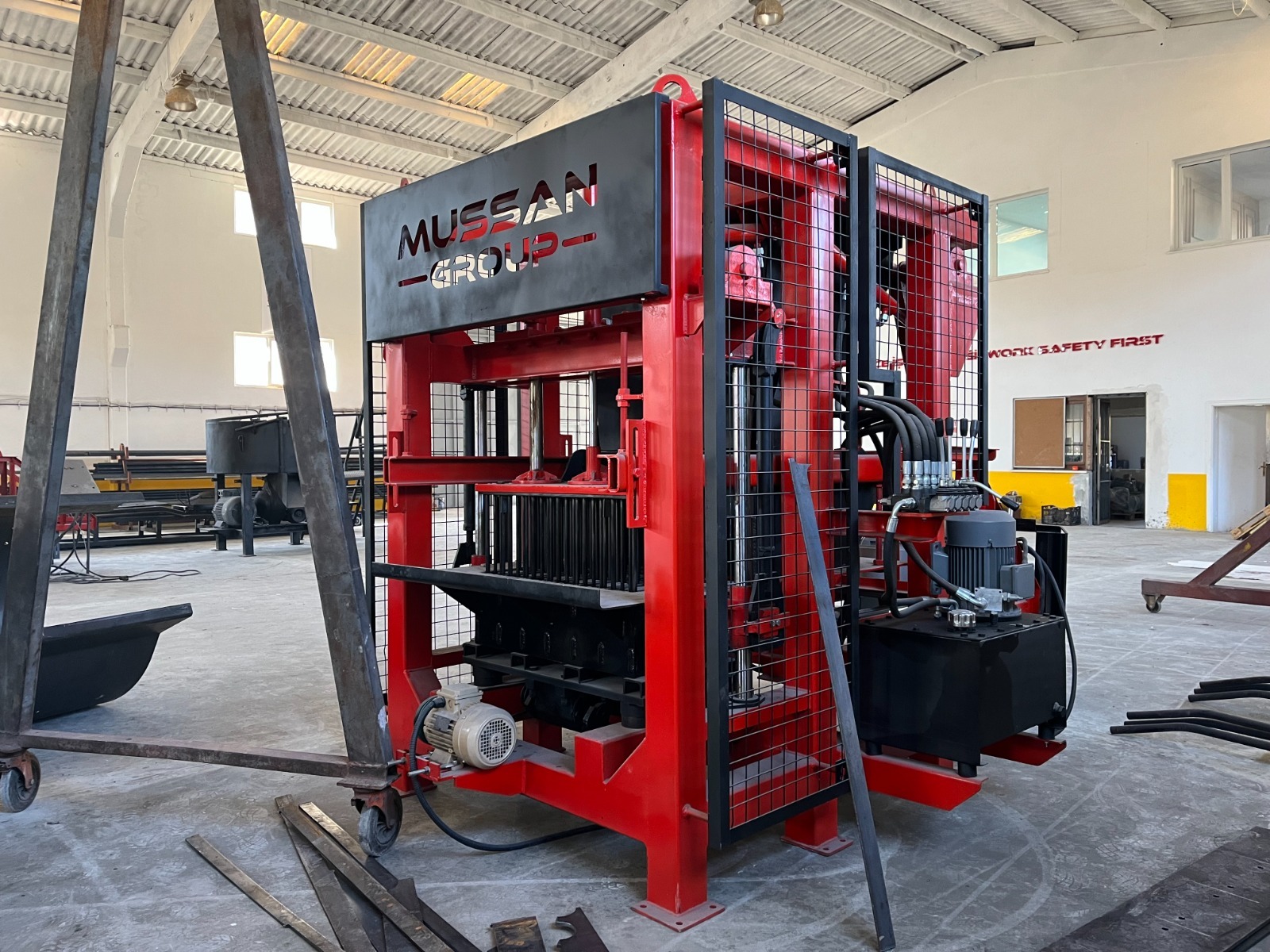
How does a block making machine work?
The block making machine is a machine that produces blocks by mixing and compressing materials such as concrete, cement, sand, water, and other additives.
| Step | Process |
| Preparation | Preparation of materials in specific proportions and mixing |
| Feeding | Feeding the mixture into the machine |
| Compression | Compressing and shaping the fed mixture |
| Extraction | Removing the shaped blocks from the machine and allowing them to dry |
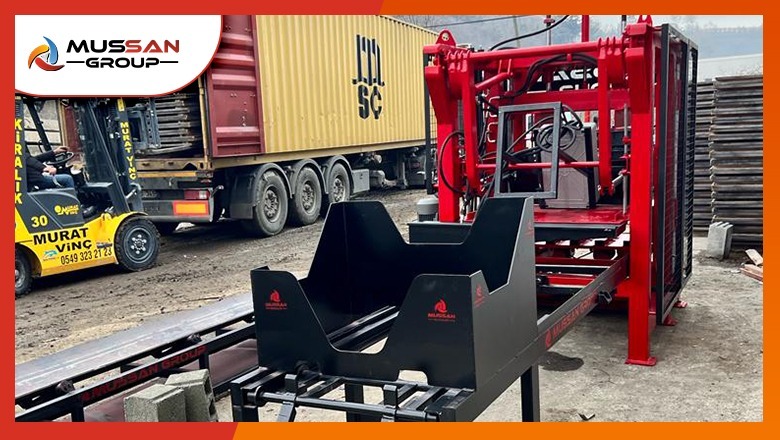

What should be considered when buying a block making machine?
When purchasing a concrete block making machine, there are several important factors to consider. Business owners should evaluate various factors to choose a machine that meets their production needs. Here are the factors to consider when buying a concrete block making machine:
Factor | Description |
Capacity | The hourly production capacity of the block machine should be selected according to the needs of the business. |
Quality | The quality of the machine is crucial for ensuring long-term and efficient production. A high-quality machine requires less maintenance and has a longer lifespan. |
Power | The motor power of the machine directly affects production capacity and efficiency. The appropriate power should be selected according to the needs of the business. |
Automation | Choosing an automatic or semi-automatic machine provides time and labor savings for the business owner. |
Size | The size of the machine should be suitable for the production area and the storage needs of the business owner. |
Warranty | The warranty period of the machine and the quality of after-sales services are important for the business owner. |
İn addition to these, other factors such as price, delivery time, assembly services, and payment terms should also be evaluated. Business owners can compare between several suppliers or manufacturers to choose a suitable concrete block making machine.
Visit Our”Products” Page.

What features are important when buying a block making machine?
When buying a block making machine, there are several important features to consider. These include:
- Capacity
- Automation Level
- Quality
- Power Consumption
- Ease of Maintenance
Below is a table comparing block making machines with different features.
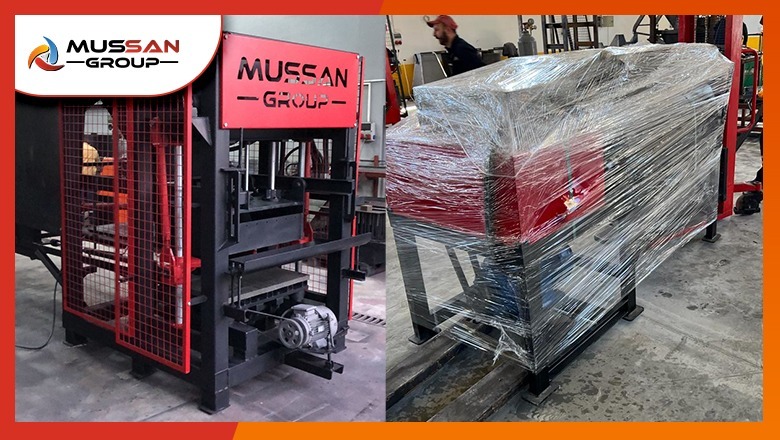
Brand and Model | Capacity | Automation Level | Quality | Power Consumption | Ease of Maintenance |
Machine A | 4,000 pieces/h | Fully Automatic | High | Low | Easy |
Machine B | 6,000 pieces/h | Semi-Automatic | Moderate | Moderate | Moderate |
Machine C | 8,000 pieces/h | Fully Automatic | High | Low | Easy |
Machine D | 10,000 pieces/h | Fully Automatic | Very High | Moderate | Easy |
Machine E | 12,000 pieces/h | Fully Automatic | High | Low | Difficult |
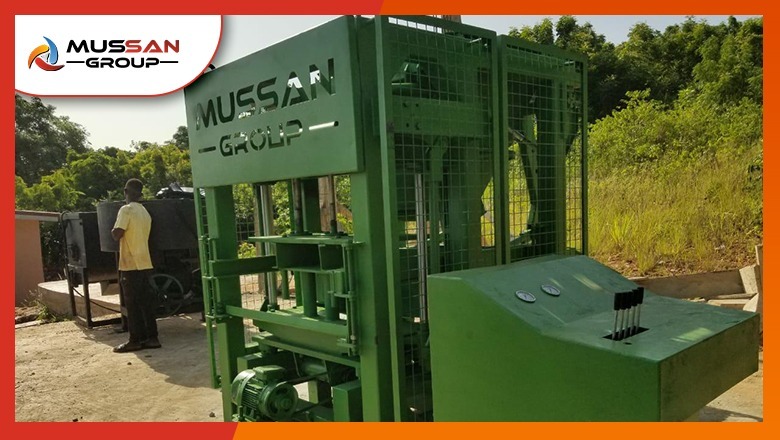

For which materials is the block-making process suitable?
The concrete block-making process is typically used in the construction sector to produce hard, durable, and high-strength structural elements. Concrete blocks can be manufactured in various sizes and shapes, making them suitable for a variety of construction projects.
The materials generally used to produce concrete blocks are typically:
- Cement
- Water
- Aggregate
The table below illustrates the materials and characteristics used in the production of different types of concrete blocks:
Concrete Block Type | Materials | Characteristics |
Standard Blocks | Cement, water, aggregate | Durable, high strength |
Perforated Blocks | Cement, water, aggregate, foam or plastic | Lightweight, good insulation properties |
Insulation Blocks | Cement, water, aggregate, cork or other insulation materials | High insulation properties |
Decorative Blocks | Cement, water, aggregate, paints or other decorative materials | Aesthetic appearance, various colors and patterns |
Concrete blocks are used in houses, offices, roads, bridges, and other construction projects. The production of concrete blocks is a significant sector in the construction industry, experiencing demand in both local and international markets.

In which industries is the blockmaking process commonly used?
The concrete block-making process is a method commonly used in the construction sector to obtain hard, durable, and high-strength structural elements.
Sector | Usage Purposes |
Construction | Construction of roads, bridges, buildings, walls, pavements, and other structural elements |
Landscaping and Gardening | Arrangement of roads, parks, gardens, playgrounds, and other outdoor areas |
Industry | Construction of factories, warehouses, ports, and other industrial facilities |
Agriculture | Construction of animal shelters, fences, and other agricultural structures |
Energy | Construction of dams, hydroelectric power plants, wind turbines, and other energy facilities |
Concrete blocks are widely used in these industries due to their durability and long lifespan.
FOTOĞRAF
PHOTO

How is maintenance performed on a block making machine?
Briquette machines require periodic maintenance and repairs for efficient and uninterrupted operation. Below are some procedures and intervals for the maintenance of a briquette machine:
Maintenance Procedure | Period |
Lubrication | Daily |
Filter Cleaning | Weekly |
Hydraulic Fluid Level Check | Weekly |
Check of Screw Connections | Weekly |
Motor Oil Change | Every 1000 Operating Hours |
Hydraulic Oil Change | Every 2000 Operating Hours |
Lubrication of Bearings | Every 5000 Operating Hours |
Electrical Connections Check | Yearly |
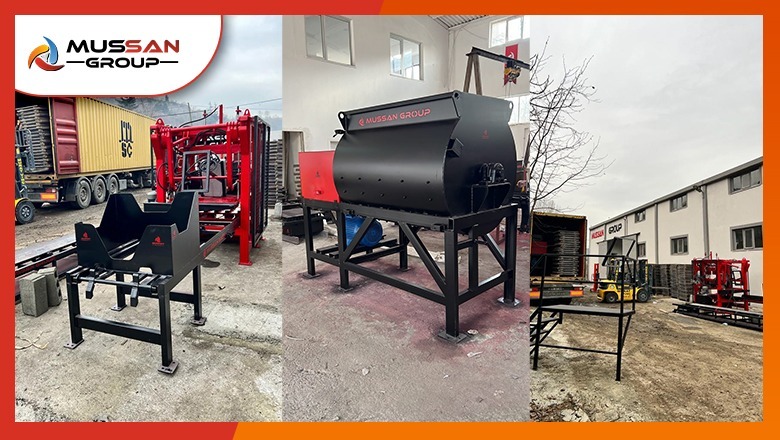

What should be considered when using a briquette machine?
A briquette machine can pose various hazards during use and can be harmful if not used correctly. Below is information about some important points to consider when using a briquette machine:
Usage Point | Important Points |
Machine Installation | Ensure the machine is properly installed. |
Electrical Connections | Ensure correct electrical connections. |
Mold Selection | Use an appropriate size and type of mold. |
Concrete Mix | Ensure the concrete mix is prepared in the correct proportions. |
Machine Settings | Confirm that machine settings are correct. |
Job Safety | Adhere to job safety rules and use protective equipment. |
Machine Maintenance | Perform regular machine maintenance. |
Machine Cleaning | Clean the machine regularly. |
The correct use and maintenance of the briquette machine ensure its efficient and safe operation. By paying attention to points such as machine installation, electrical connections, mold selection, concrete mix, machine settings, job safety, machine maintenance, and cleaning, you can make the most of the briquette machine.

What machines should be preferred when buying a briquette machine?
When purchasing a concrete block machine, the following factors should be taken into consideration:
- Capacity
- Power
- Automation
- Quality
- Cost
In summary, it is important to consider factors such as capacity, power, automation, quality, and cost when purchasing a briquette machine.
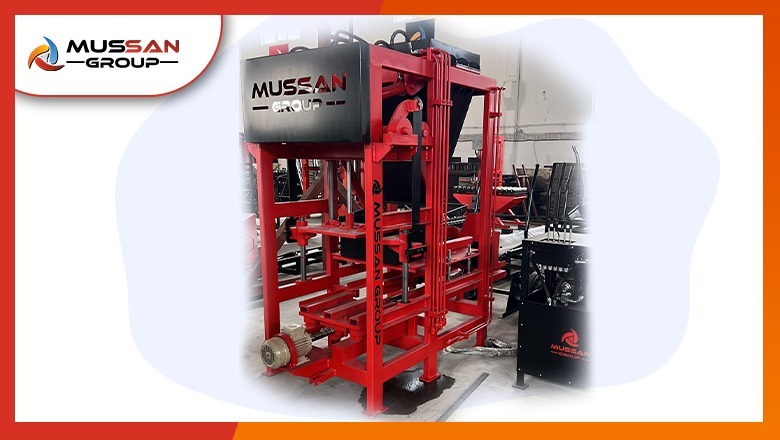

What technologies are used for the production of briquette machines?
Many different technologies are used in the production of briquette machines. These technologies may include:
- Hydraulic Systems
- Electronic Control Systems
- Automation Technologies
- CNC Technology
- High-Pressure Compression Technologies
- Energy Saving Technologies
All these technologies contribute to making concrete block machines more efficient, safe, and durable.

How can a briquette machine be transported and assembled?
Care should be taken when transporting and assembling a briquette machine. The weight and dimensions of the machine require advance planning for proper transportation and assembly. Here are steps that can be followed in this process:
Step | Explanation |
Preparation | Prepare the location where the machine will be transported and assembled. |
Disassembly | Dismantle the machine’s parts to make it easier to transport. |
Transport | Place the machine on a suitable transport vehicle. |
Assembly | Prepare the necessary tools and equipment to assemble the machine. |
Testing | Conduct a test run to ensure the machine is operating correctly. |
Note: The transportation and assembly of the concrete block machine should be done by an expert individual or team.

What technical information is needed for the operation of the briquette machine?
For the operation of the briquette machine, the following technical information is needed:
- Power Source
- Mold Sizes
- Material Properties
- Machine Capacity
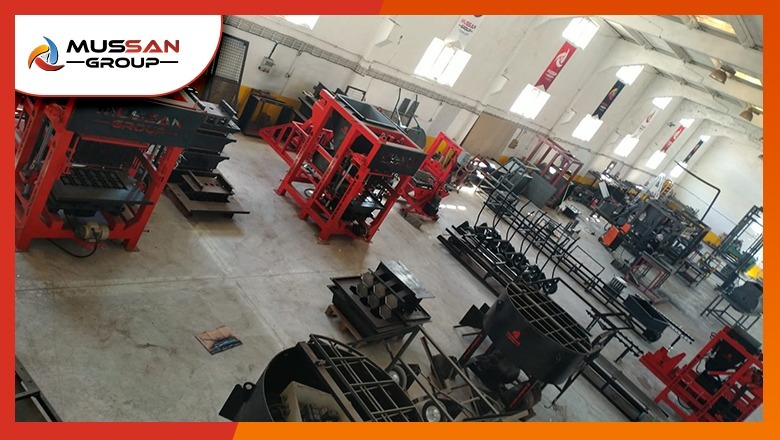
As a table, some technical specifications of the briquette machine can be listed as follows:
Technical Specifications | Values |
Power Source | Electric motor or diesel engine |
Mold Sizes | 100x200x50 mm, 200x200x50 mm, 400x200x200 mm, etc. |
Material Properties | Concrete mix, hardness, thickness, etc. |
Machine Capacity | 1000-3000 pieces/hour, 5000-10000 pieces/hour, 20000-30000 pieces/hour, etc. |
“Choosing us means having a reliable, efficient, and environmentally friendly briquette machine experience. Take a step towards successful briquette production with our solutions tailored to your needs. Contact us, and let us provide you with the best options.”



